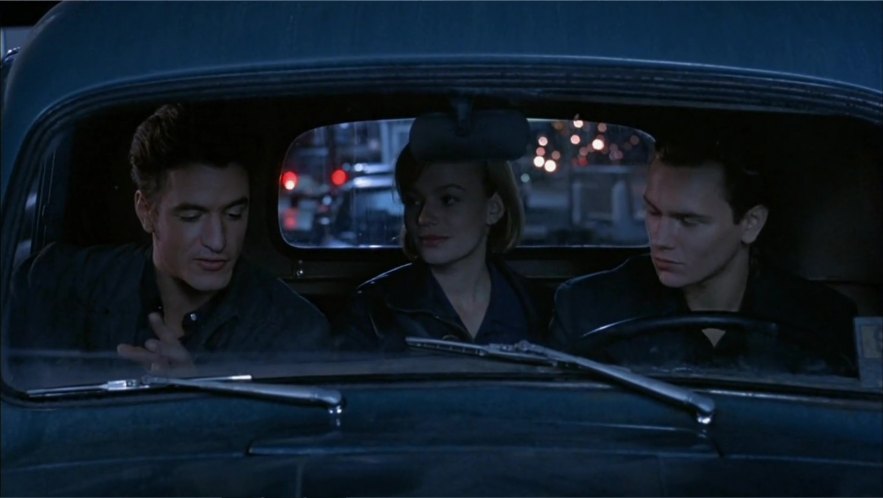
The Thing Called Love
Directed by Peter Bogdanovich. US, 1993, 116/118 minutes (theatrical cut/director’s cut).
Available on DVD and VOD.
Every obituary of Peter Bogdanovich—every one I’ve read, anyway—leads with The Last Picture Show (1971). And for good reason: it was his breakout film, and has since become a canonical American classic, a prime example of the early work made by the young, movie-obsessed filmmakers associated with New Hollywood. What’s Up, Doc? (1972) and Paper Moon (1973), the two films he made after Picture Show and his two other biggest hits, also receive significant attention. Then might follow discussion of the infamous flops that killed (or at least severely injured) his career: Daisy Miller (1974), At Long Last Love (1975), and They All Laughed (1981). Those obits more in tune with current trends in cinephilia might note how the notorious trio have all seen reevaluation in recent years, but they remain part of a downfall narrative regardless. And then there’s the rest, flops that can’t even lay claim to infamy. These films might receive a one sentence description, or perhaps no mention at all. But I’d count among them some of his very best works—including Nickelodeon (1976), Texasville (1990), and Noises Off (1992).
Finally, the one I’d most strongly recommend is The Thing Called Love (1993), about a New York woman (Samantha Mathis) who takes a bus to Nashville to pursue her dream of being a country music star. It possesses many elements which recur throughout Bogdanovich’s oeuvre: a strong sense of regional specificity, an exploration of group dynamics, a relaxed narrative approach, and an unapologetic romantic streak. What really makes it special, I think, is its portrayal of young artists discovering how to express themselves. Bogdanovich’s other movies about artists come from a more jaded perspective, made by a time-served professional who is more than familiar with the toils of producing commercial artworks. The material here, from a script by Carol Heikkinen, seems to allow Bogdanovich to recall a time before Picture Show, when he daydreamed of being the next Orson Welles or Howard Hawks. Perhaps my favorite moment in his whole filmography happens when sincere, heartsick songwriter Kyle (Dermot Mulroney), on his way out of town after his unrequited feelings for Mathis become too much to bear, hears one of his songs on the radio and rear-ends the car ahead of him. The driver gets out to confront him while a dumbfounded Kyle keeps repeating “that’s my song;” eventually the driver’s defenses are let down, as he and a crowd that’s gathered round to see the commotion share in the innocent joy of the moment. [★★★★★]
Etan Weisfogel is a film and media critic based in Brooklyn.

